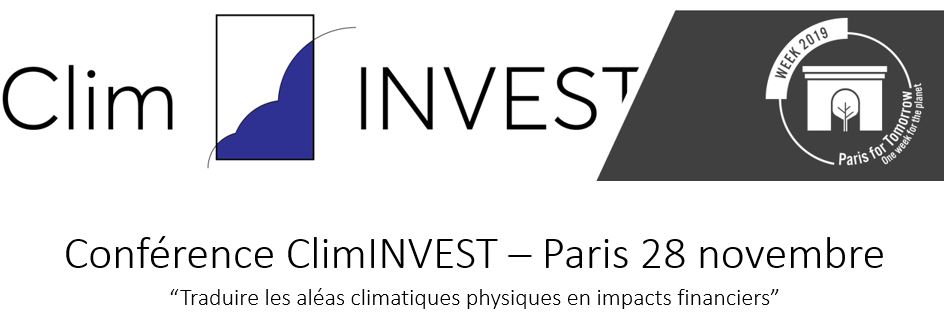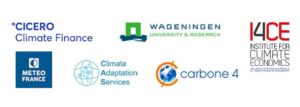CONFÉRENCE I translating physical climate hazards into financial impacts
Conferences - By : Romain HUBERT

What are the needs of financial institutions to integrate physical climate risks in their decisions? What solutions are already emerging to fill these needs?
To answer these questions, the European ClimINVEST consortium shared the results of a 2-year collaboration between financial institutions and climate change specialists. The research institutions and partners in the financial sector explained how they clarified their needs and present their solutions to help integrate physical climate risk in investors’ decisions.
This event was an opportunity for financial practitioners to learn science-based and pragmatic recommendations about what physical climate risk assessment should look like, what kind of scientific information can be used and why, but also pave the way forward.

More information on the ClimINVEST project is available here.
Paris for Tomorrow Week : Organized by Finance for Tomorrow and placed under the High Patronage of Paris City Hall, the “Paris for Tomorrow Week” is taking place from November 25 to 29, 2019. More than just a “Climate Week”, the week-long series of events explores issues related to both financing and achieving the climate objectives and the Sustainable Development Goals (SDGs). This whole week will gather in Paris the financial and business community as well as civil society, local and public authorities.
